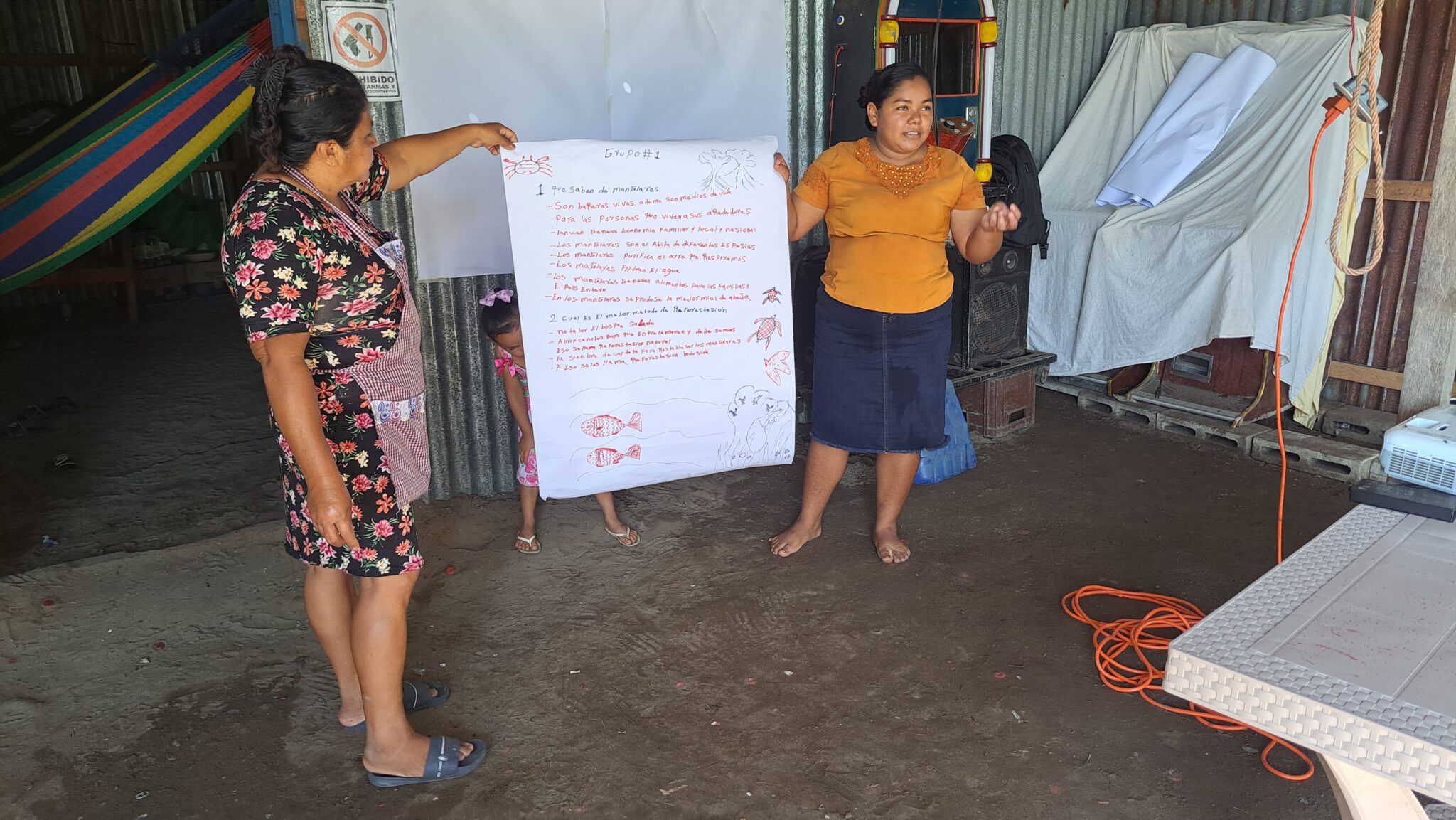For years, the coastal mangrove forests of San Sebastián Island have been polluted by trash from the Rio Grande de San Miguel River and Bay of Jiquilisco. The contamination affects the 220 families in the community. It also affects wildlife, including the American crocodile, leatherback turtle, and hawksbill turtle. Fish, mollusk, and crab populations have also suffered. Mangrove trees have died because of disturbances in the natural flow of water.
A group of local women has been trying to clean up all the trash. They are now teaming up with Asociación Mangle, our NGO partner from the successful Montecristo Island sea turtle conservation project. Around 30 people will learn how to conduct effective beach cleanups and manage the waste, as well as to identify the upstream sources of the pollution. A team of 15 women will lead 12 cleanups.
They will clear over half a mile of mangrove channel that is currently choked with trash and sediment. They will also restore mangroves in a five-acre area. At a three-day workshop, participants will learn about Ecological Mangrove Restoration, which identifies the best site-specific ways to promote restoration. The women leading the project will include their children and other relatives in the trash management and mangrove conservation.
To support themselves, the women make and sell tortillas and pupusas (griddlecakes made with cornmeal or rice flour, the national dish of El Salvador), grow fruit and raise chickens. This project will give them support in the form of equipment for their small businesses. The local school’s sports field will also get a new fence. Radio Mangle, a conservation-oriented FM station that promoted the Montecristo Island sea turtle conservation program, will help publicize the project with radio spots, interviews, and a video.











